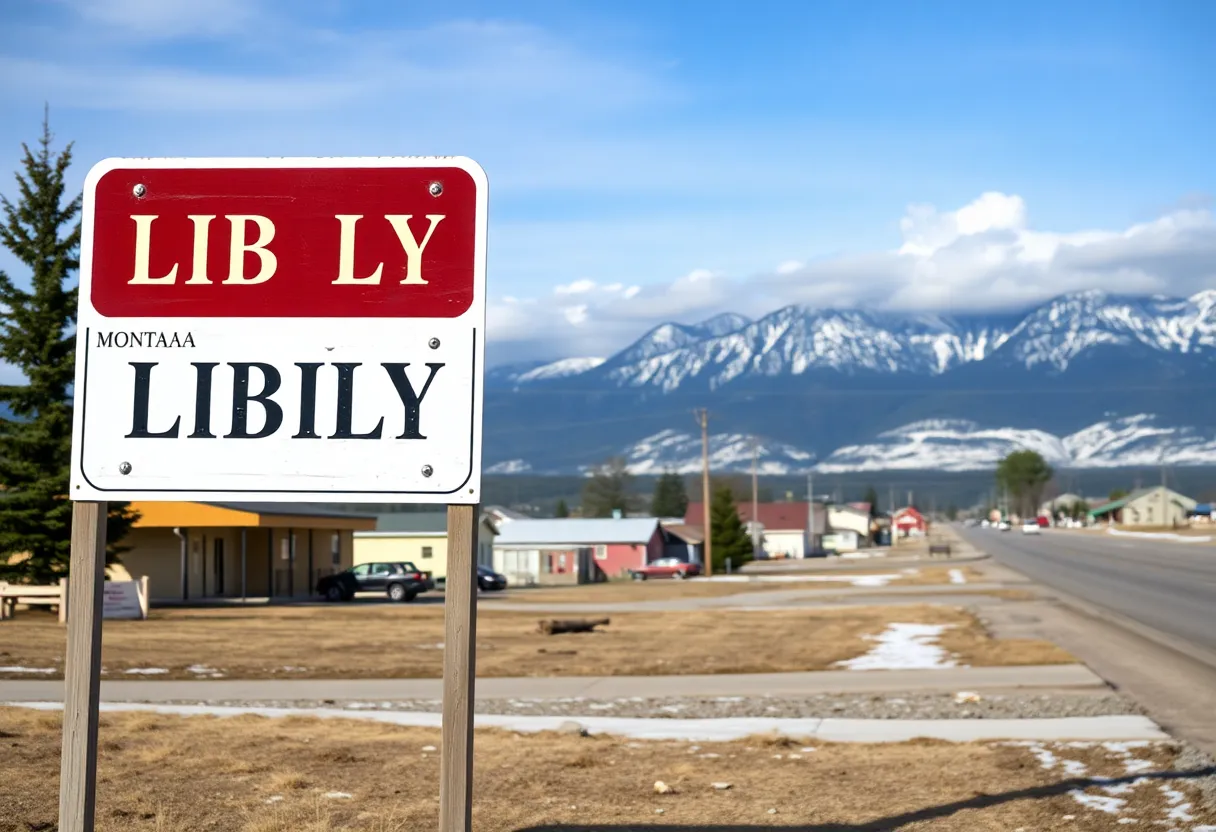News Summary
The Center for Asbestos Related Disease in Libby, Montana, has been shut down following a legal judgment, raising concerns over local health care access.
Closure of Asbestos Help Clinic Shakes Small Montana Town
In a shocking turn of events, the Center for Asbestos Related Disease (CARD), a lifeline for many in the small town of Libby, Montana, has been shut down following a court order. Authorities executed the seizure of the clinic’s assets on Wednesday as part of a legal judgment that mandates CARD to pay $3.1 million to BNSF Railway.
Historical Context: Asbestos and Its Legacy
Libby, a town of around 3,000 residents, has been grappling with the repercussions of asbestos dust released by a nearby mine that operated for decades. The mine not only polluted the local environment but also left a legacy of health issues among its residents, leading to the formation of CARD two decades ago. CARD has played a crucial role in providing health screenings, monitoring, and treatment for those affected by asbestos-related illnesses.
Legal Battles and the Impact of the Closure
The operations of CARD have not been without challenges. In 2023, a court found that BNSF Railway fraudulently claimed that CARD had misdiagnosed patients to improperly grant them eligibility for government health benefits. In this significant legal battle, BNSF invalidated over 2,000 diagnoses made by CARD, declaring that 337 of them were false.
The lawsuit against CARD was initially filed by the federal government, scrutinizing the clinic’s practices as it provided specialized Medicare services to asbestos victims. In a bitter twist, BNSF was awarded a substantial $6 million judgment against CARD, with claims of $3.1 million still owed due to additional costs related to the claims. Following the fraud judgment, CARD declared bankruptcy but had continued operations under a settlement agreement between BNSF, the federal government, and the clinic.
Community Health Concerns Arise
The abrupt closure of CARD brings with it a wave of concern for local residents who heavily relied on the services provided. The Executive Director of CARD stressed that the closure would greatly impact public health, especially regarding screenings for asbestos-related health issues. The loss of screening services means fewer individuals will have access to vital health assessments.
As BNSF moved to claim its judgment through the seizure of CARD’s property, some legal representatives for the clinic have argued that such actions contravene the bankruptcy settlement. The spokesperson for BNSF has maintained that their actions follow due legal process, as they seek to collect damages as ordered by the judge.
A Pivotal Moment for Residents
With the clinic’s future hanging in the balance, the potential repercussions for local patients are dire. For over 20 years, CARD has been a cornerstone in the community, providing essential care for many who have been affected by asbestos exposure. The Environmental Protection Agency recognized the severity of the pollution issues by placing the Libby mine site on the Superfund National Priorities List in 2002.
Current legal issues are compounded by a separate lawsuit against CARD, alleging medical malpractice related to opioid prescriptions, which further complicates the clinic’s precarious situation. Amidst these ongoing legal battles, a significant grant from the Centers for Disease Control and Prevention, which constitutes around 80% of CARD’s budget, is under review, adding to the uncertainty surrounding the clinic’s operations.
Conclusion: A Community in Limbo
The community of Libby, already burdened by the aftermath of asbestos pollution, now faces the daunting challenge of navigating health care in the absence of CARD. As the Lincoln County Sheriff expressed concerns about the ramifications for local health, the future of the town appears uncertain. The situation highlights the ongoing struggles that small communities contend with in the legacy of industrial pollution and underscores the urgent need for continued support for those affected by asbestos.
Deeper Dive: News & Info About This Topic
HERE Resources
The Asbestos Crisis in Libby Takes a New Turn: CARD Faces Financial Ruin
The Closure of CARD: A Troubling Chapter for Libby’s Asbestos Victims
Asbestos Corporation Ltd. Faces Legal Turmoil Amidst Mesothelioma Allegations
Clinic Closure Sends Shockwaves Through Libby, Montana
Southern California Edison Faces Class Action After Fatal Eaton Fire
Closure of Libby’s Asbestos Screening Clinic Raises Public Health Concerns
Clinic Closure Sparks Fear in Libby, Montana
Residents of Branan Towers Raise Alarm Over Asbestos Exposure
Closure of Asbestos Screening Clinic Shocks Libby, Montana Community
Breakthrough for Pleural Mesothelioma Patients: HITOCH Procedure Shows Promise



















